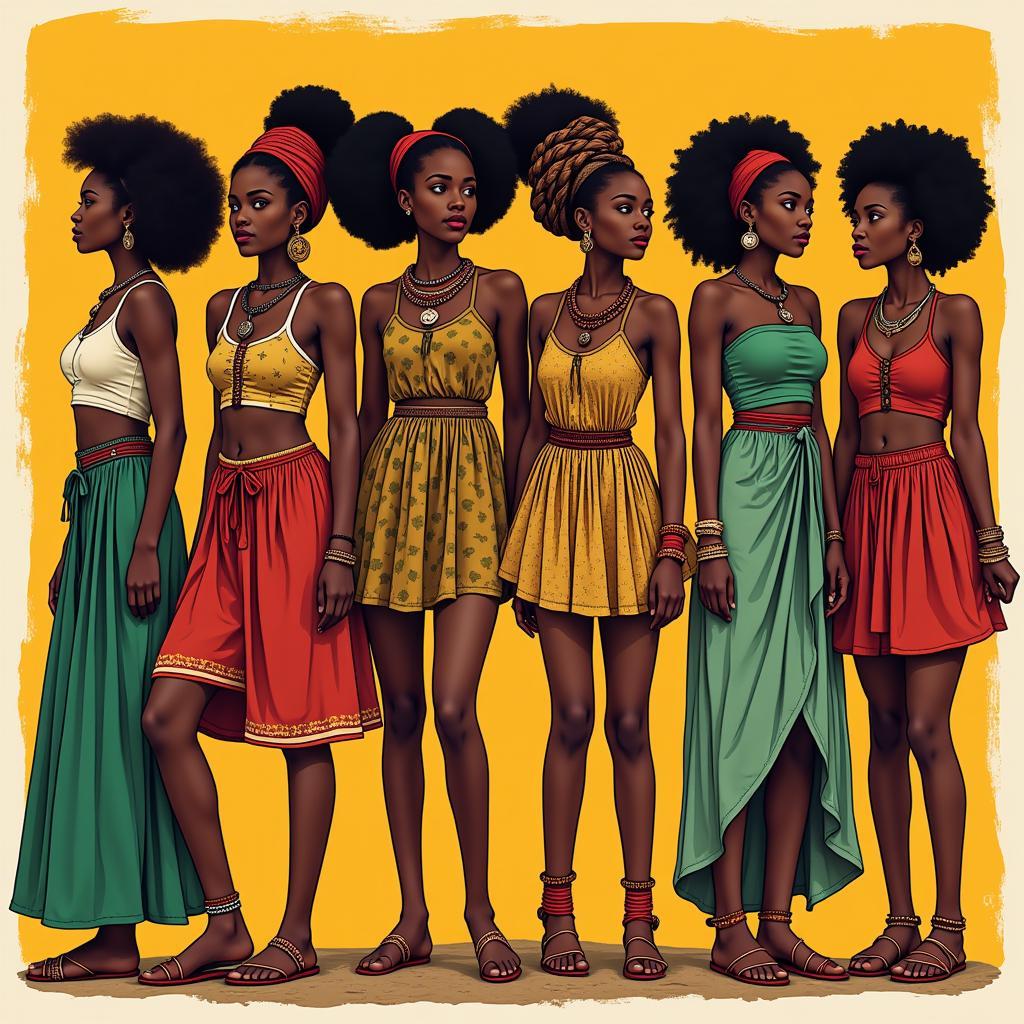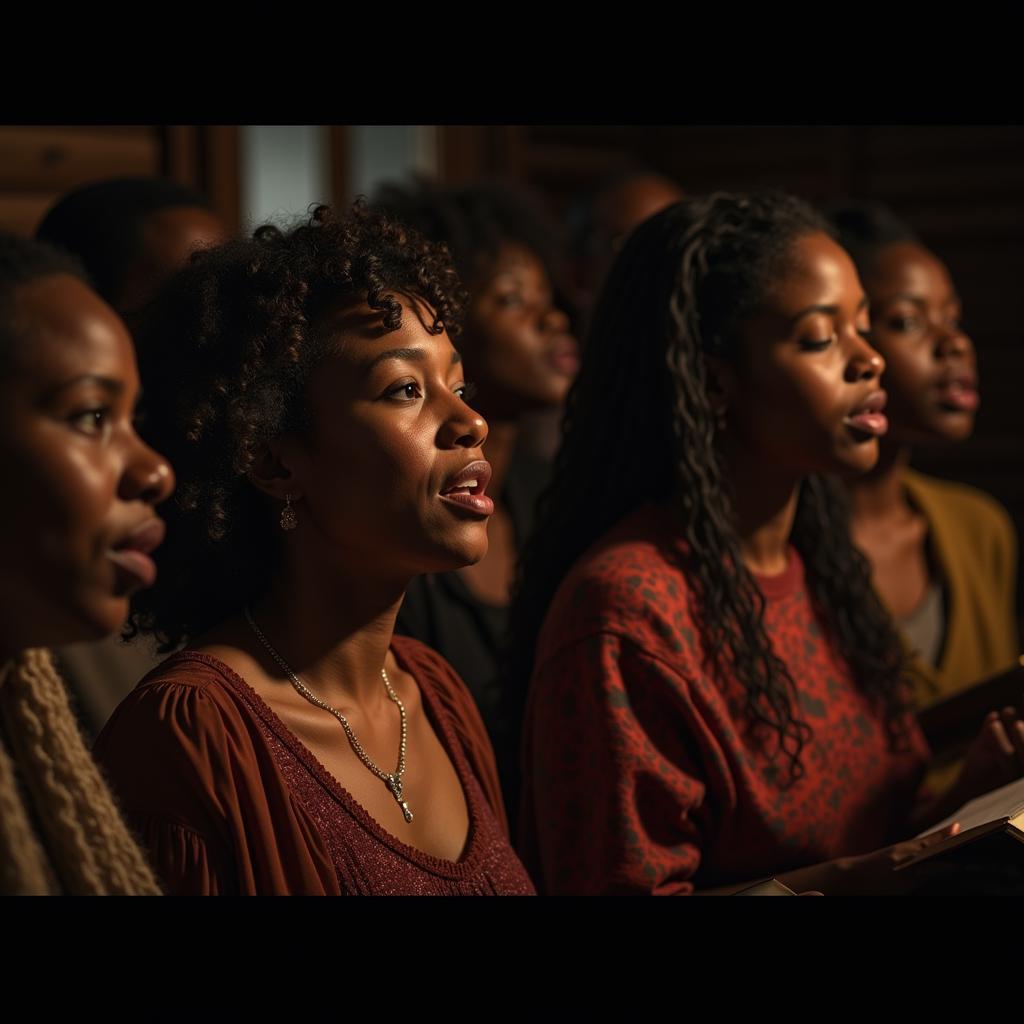Exploring the World of African American Drama Authors
African American Drama Authors have made significant contributions to the world of theatre, offering unique perspectives and powerful storytelling. From exploring themes of racial injustice and identity to celebrating the resilience and triumphs of the Black community, these playwrights have shaped American theatre and continue to inspire audiences worldwide. This article delves into the rich history, diverse styles, and influential voices within African American dramatic literature.
After the Civil War, African American theatre began to emerge as a distinct art form, reflecting the struggles and aspirations of a newly freed people. Early playwrights often addressed themes of social uplift and racial prejudice, laying the groundwork for future generations of artists. This burgeoning theatrical landscape would see the rise of influential figures who would shape the course of American drama.
Pioneering Figures in African American Drama
The Harlem Renaissance, a period of vibrant artistic and intellectual activity in the 1920s and 30s, witnessed a flourishing of African American drama. Playwrights like Angelina Weld Grimké, with her groundbreaking play Rachel (1916), confronted the brutal realities of racism and its impact on Black families. Her work paved the way for other writers to explore complex social issues on stage. Check out resources like this african american literature textbook to learn more about this fascinating period.
Similarly, Willis Richardson, considered the “Father of Black Drama,” focused on realistic portrayals of Black life, challenging stereotypical representations that dominated mainstream theatre. His work provided a platform for authentic Black voices and stories to be heard.
The Rise of Lorraine Hansberry and August Wilson
Mid-20th century saw the emergence of iconic playwrights like Lorraine Hansberry, whose masterpiece A Raisin in the Sun (1959) became the first play by a Black woman to be produced on Broadway. Hansberry’s work brought the struggles of a working-class Black family into the national spotlight, sparking important conversations about housing discrimination, dreams deferred, and the pursuit of the American Dream.
Later, August Wilson’s ten-play cycle chronicling the African American experience throughout the 20th century solidified his place as one of the greatest American playwrights of all time. From Fences to The Piano Lesson, Wilson’s work explores themes of family, legacy, and the enduring impact of history on the present. Explore more works by influential african american book writers.
Contemporary Voices and Future Directions
African American drama continues to evolve, with contemporary playwrights pushing boundaries and exploring new theatrical forms. Suzan-Lori Parks’ experimental language and deconstruction of historical narratives, as seen in Topdog/Underdog, challenge traditional notions of storytelling. Tarell Alvin McCraney’s lyrical and emotionally resonant plays, such as Choir Boy, delve into the complexities of identity and belonging within the Black community.
“African American drama is a testament to the power of storytelling to illuminate the human condition. These playwrights give voice to the often unheard, forcing us to confront uncomfortable truths while celebrating the resilience of the human spirit,” says Dr. Anika Johnson, Professor of Theatre Studies at Howard University.
 Contemporary African American Playwrights
Contemporary African American Playwrights
What makes African American drama unique?
African American drama offers a distinctive blend of cultural influences, often incorporating elements of music, dance, and oral tradition. This rich tapestry creates a theatrical experience that is both entertaining and thought-provoking. Many playwrights draw on their own personal experiences and the collective memory of the Black community to craft powerful and authentic stories. You can find captivating narratives in various african culture books. Looking for stunning visuals for your own creative projects? Discover african american premade book covers for inspiration.
In conclusion, African American drama authors have played a pivotal role in shaping American theatre. From the early pioneers to contemporary voices, these playwrights have given us powerful stories that explore the complexities of the Black experience. Their work continues to resonate with audiences, inspiring dialogue and challenging us to confront important social issues. For those interested in exploring the world of performance, a resource like 50 african american audition monologues pdf can be invaluable.
FAQ
- Who is considered the “Father of Black Drama”? (Willis Richardson)
- What was the first play by a Black woman to be produced on Broadway? (A Raisin in the Sun)
- Who wrote the ten-play cycle chronicling the 20th-century African American experience? (August Wilson)
- What are some common themes explored in African American drama? (racial injustice, identity, family, legacy, resilience)
- Who are some prominent contemporary African American playwrights? (Suzan-Lori Parks, Tarell Alvin McCraney)
- Where can I find resources to learn more about African American drama? (Libraries, online databases, academic journals)
- How has African American drama influenced American theatre as a whole? (By introducing diverse perspectives, challenging traditional forms, and sparking important social conversations.)
Need support? Contact us 24/7: Phone: +255768904061, Email: kaka.mag@gmail.com or visit us at Mbarali DC Mawindi, Kangaga, Tanzania.

